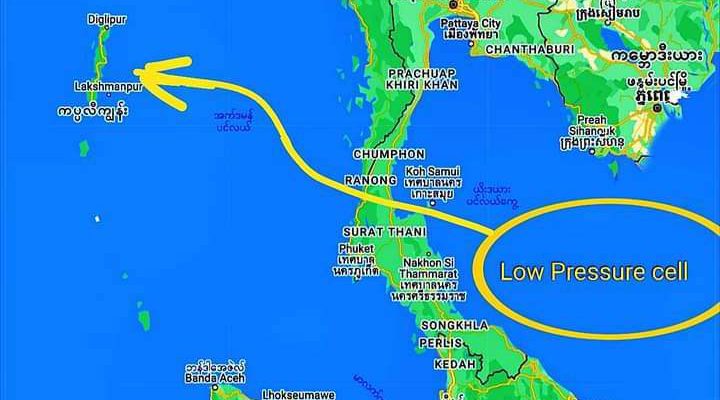
International finance is a crucial field that deals with the economic transactions between countries. As businesses, governments, and financial institutions continue to globalize, understanding the fundamentals of international finance becomes vital for navigating the complexities of the global economy. Whether you’re a student, business professional, or just curious about the global financial system, mastering the basics of international finance is essential. This article will cover the key concepts, players, and dynamics that drive international financial markets.

1. What is International Finance?
International finance, also known as international macroeconomics or global finance, focuses on monetary interactions between two or more countries. It includes cross-border financial transactions, foreign exchange markets, and the study of international monetary systems and financial policies.
It’s primarily concerned with how countries trade goods and services, how they invest in each other’s economies, and how they manage their currency exchange rates and monetary systems. It is pivotal in the context of globalization, where companies and individuals conduct business across borders.
2. Key Elements of International Finance
Several key elements form the foundation of international finance, and understanding these components is crucial to grasp how it operates.
a. Exchange Rates
Exchange rates are one of the most fundamental aspects of international finance. They represent the value of one currency in terms of another and play a critical role in international trade and investments. Exchange rate fluctuations can affect profits for businesses involved in global operations and influence the cost of goods and services for consumers.
b. Foreign Exchange Market (Forex)
The foreign exchange market is the world’s largest financial market, with daily transactions exceeding $6 trillion. It facilitates the buying and selling of currencies, allowing countries and businesses to exchange one currency for another. The forex market plays a key role in determining exchange rates and is integral to international finance.
c. Balance of Payments (BoP)
The balance of payments is a financial statement that summarizes a country’s economic transactions with the rest of the world over a specific period. It includes both the current account (trade balance, services, income) and the capital account (investments, loans). Understanding BoP helps nations gauge their financial health on an international scale.

d. Global Capital Markets
International finance also involves the flow of capital between countries through global capital markets. These markets enable the trading of securities, bonds, and other financial assets internationally. Global capital markets allow countries and companies to raise funds for investments and expansions, while investors seek returns on their investments worldwide.
e. Foreign Direct Investment (FDI)
FDI refers to investments made by a company or individual in one country into business interests in another country. FDI is a major driver of economic growth and globalization, fostering international collaboration and technology transfer. Companies may engage in FDI by establishing operations, purchasing assets, or forming partnerships abroad.
3. Major Players in International Finance
International finance involves a variety of players that interact across borders to facilitate trade, investment, and economic growth. Here are some of the key participants:
a. Central Banks
Central banks are responsible for managing a nation’s monetary policy and exchange rates. They also play a critical role in the global financial system by participating in currency markets and coordinating with other central banks to maintain financial stability.
b. Multinational Corporations (MNCs)
MNCs operate in multiple countries and are key players in international finance. These companies engage in cross-border trade, investment, and operations, often requiring sophisticated financial strategies to manage currency risk, taxes, and regulations in different countries.
c. International Financial Institutions
Organizations such as the International Monetary Fund (IMF), World Bank, and World Trade Organization (WTO) help regulate and stabilize the global financial system. The IMF, for example, offers financial assistance to countries facing economic instability, while the World Bank focuses on funding development projects in emerging economies.
d. Hedge Funds and Investment Banks
Hedge funds and investment banks play a crucial role in international finance by facilitating global investment flows, underwriting international debt, and managing currency risk. These institutions often engage in speculative trading on foreign exchange markets and invest in cross-border financial instruments.
4. Risk Management in International Finance
One of the primary concerns in international finance is the management of risks that arise from currency fluctuations, political instability, and economic uncertainties. Businesses and governments use various financial instruments to mitigate these risks, including:
Hedging: Companies use financial derivatives like forward contracts, options, and futures to lock in exchange rates and protect themselves from currency volatility.
Diversification: By spreading investments across different countries and industries, investors can reduce their exposure to country-specific risks.
Political Risk Insurance: Businesses operating in politically unstable regions often purchase insurance to safeguard their investments against unexpected government actions, such as expropriation or changes in tax policies.
5. Why International Finance Matters
In today’s interconnected world, international finance is more important than ever. It helps nations grow their economies, allows businesses to expand across borders, and enables consumers to access a broader range of goods and services. Here are a few reasons why international finance matters:
Economic Growth: International finance fosters investment and trade, which drives global economic growth.
Global Integration: It promotes greater integration of financial markets, allowing for efficient capital allocation and wealth generation across borders.
Currency Stability: Effective international financial policies help stabilize currency exchange rates, which is crucial for maintaining healthy trade relationships.
Crisis Management: International financial institutions provide assistance and solutions to countries facing financial crises, helping them recover and stabilize their economies.




